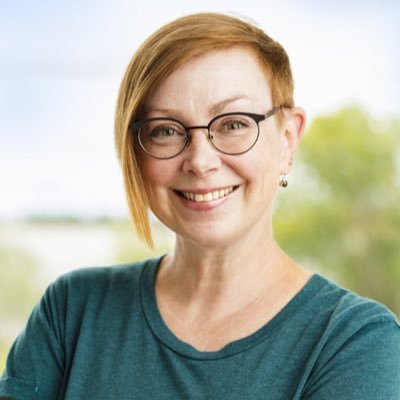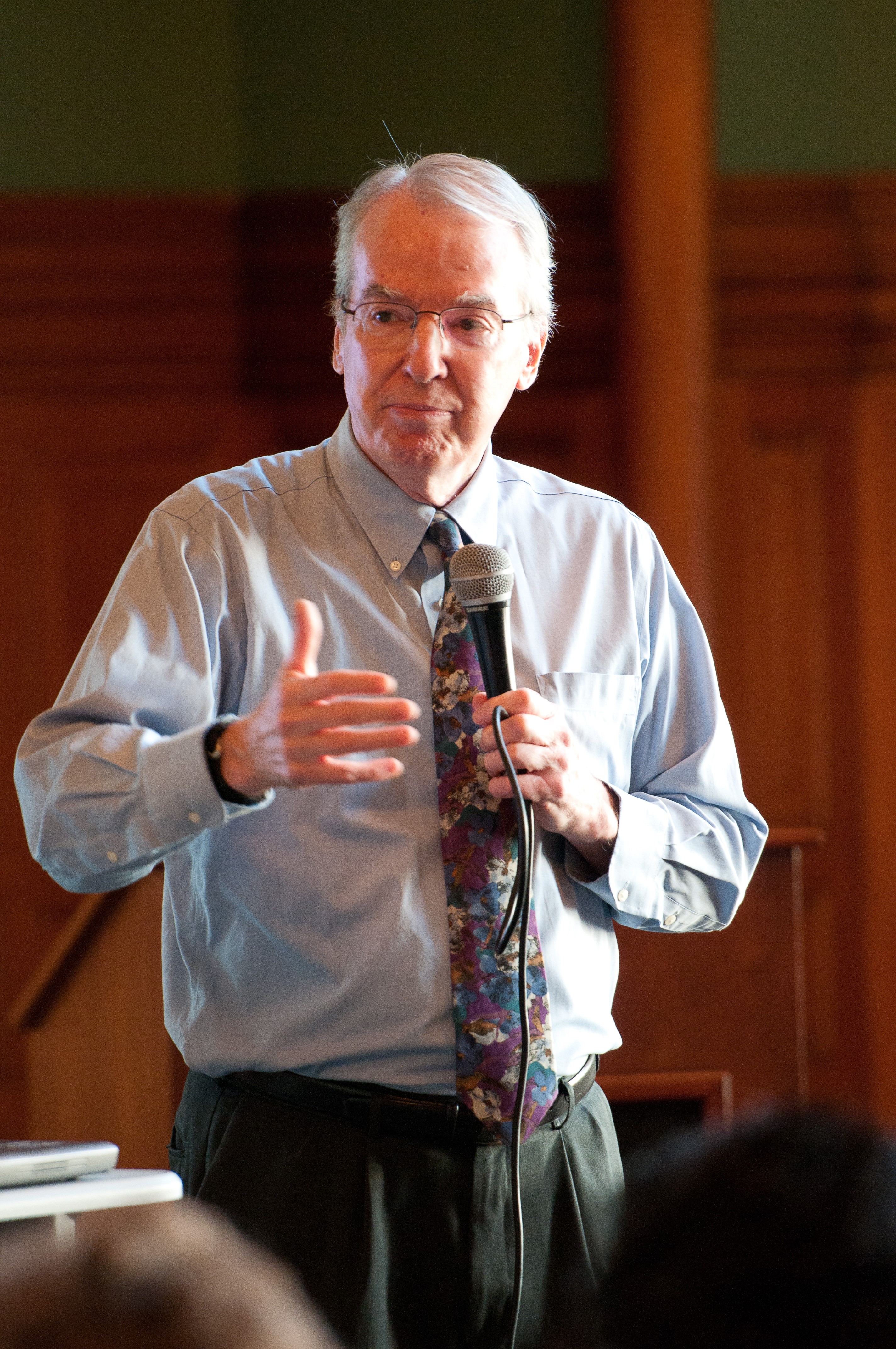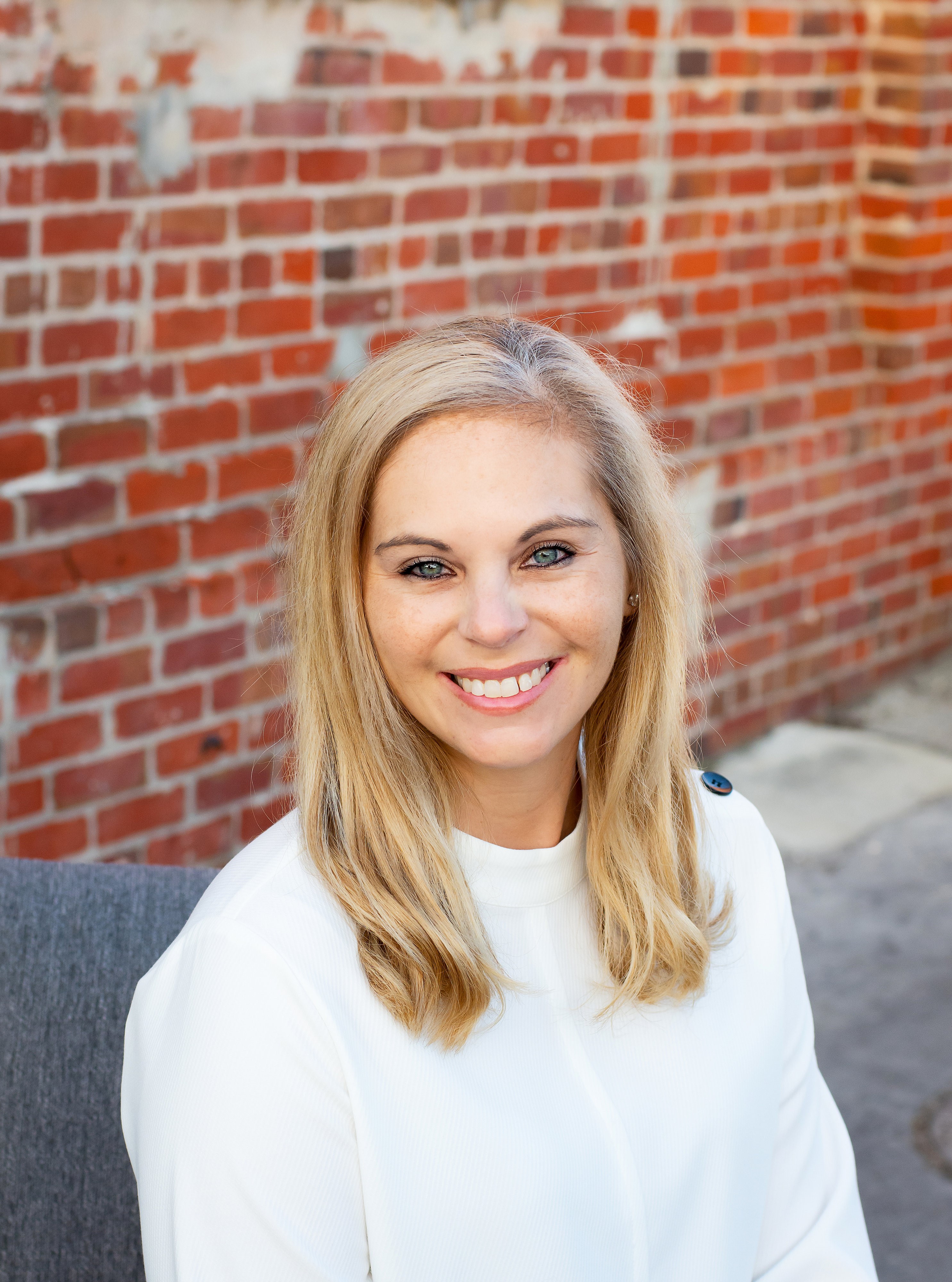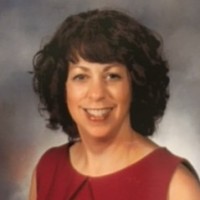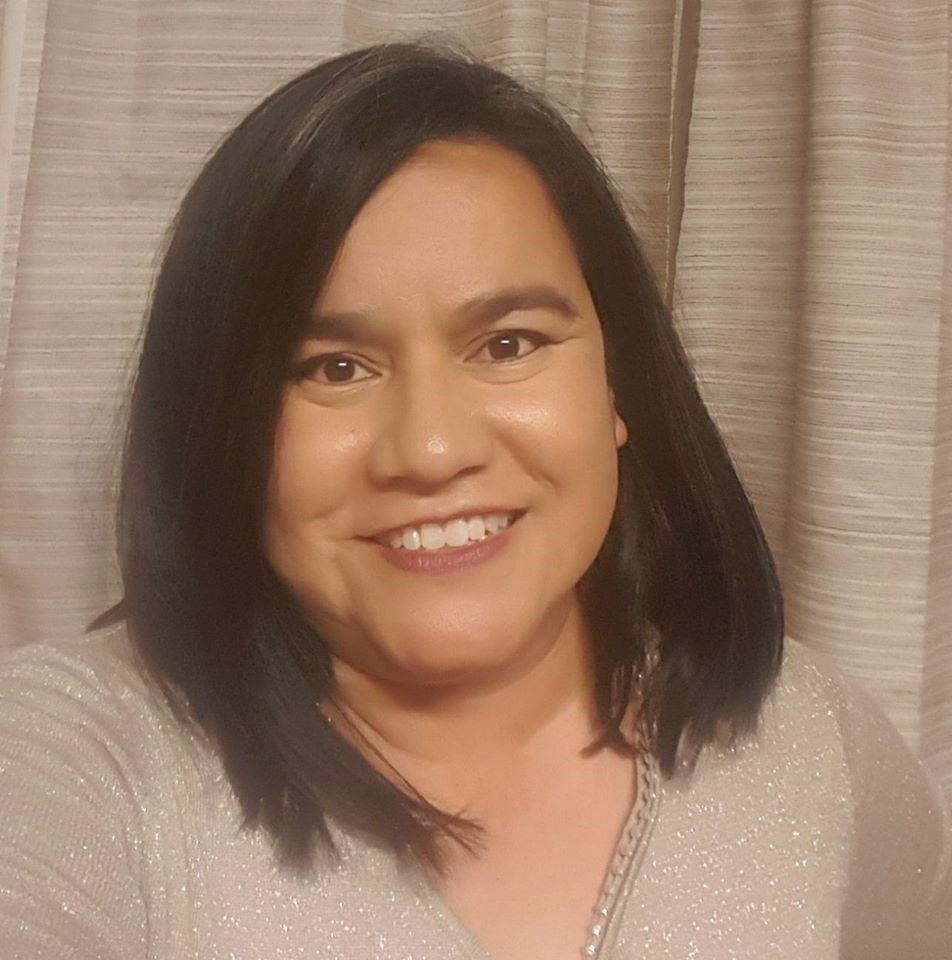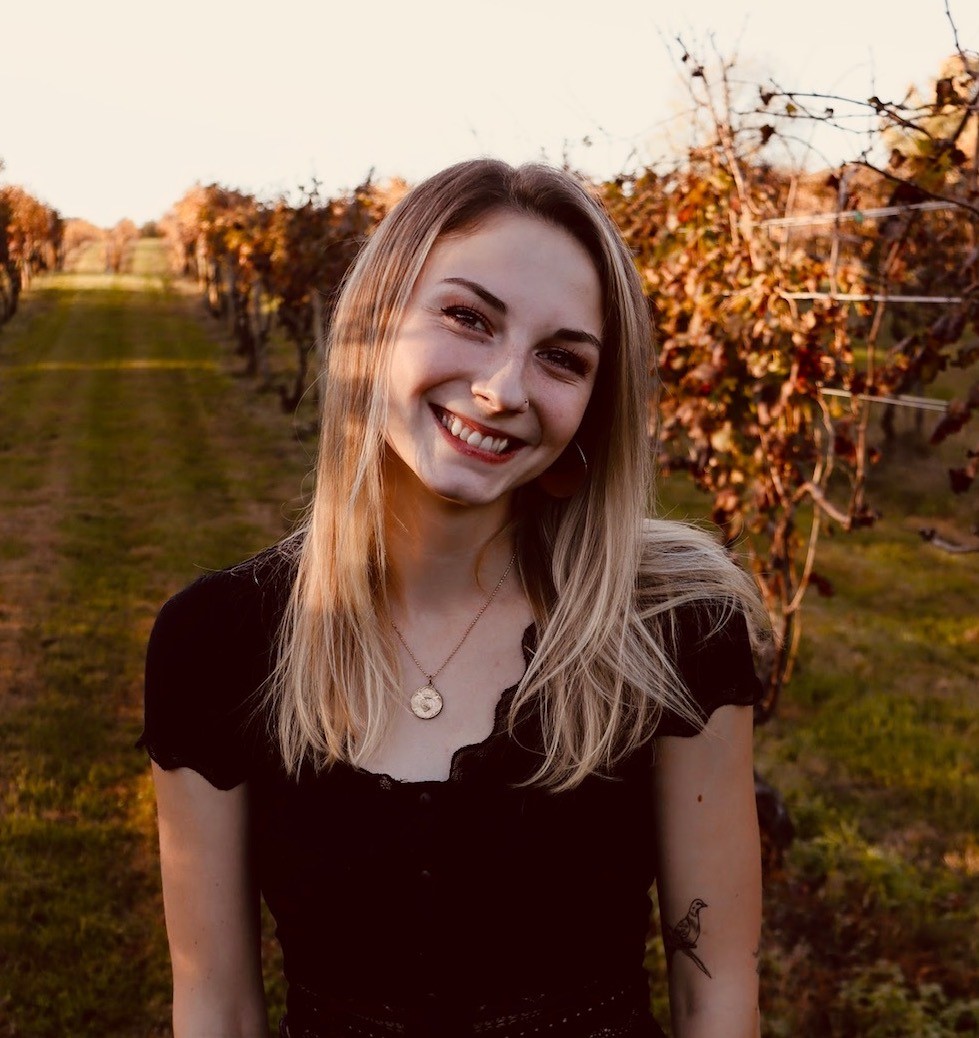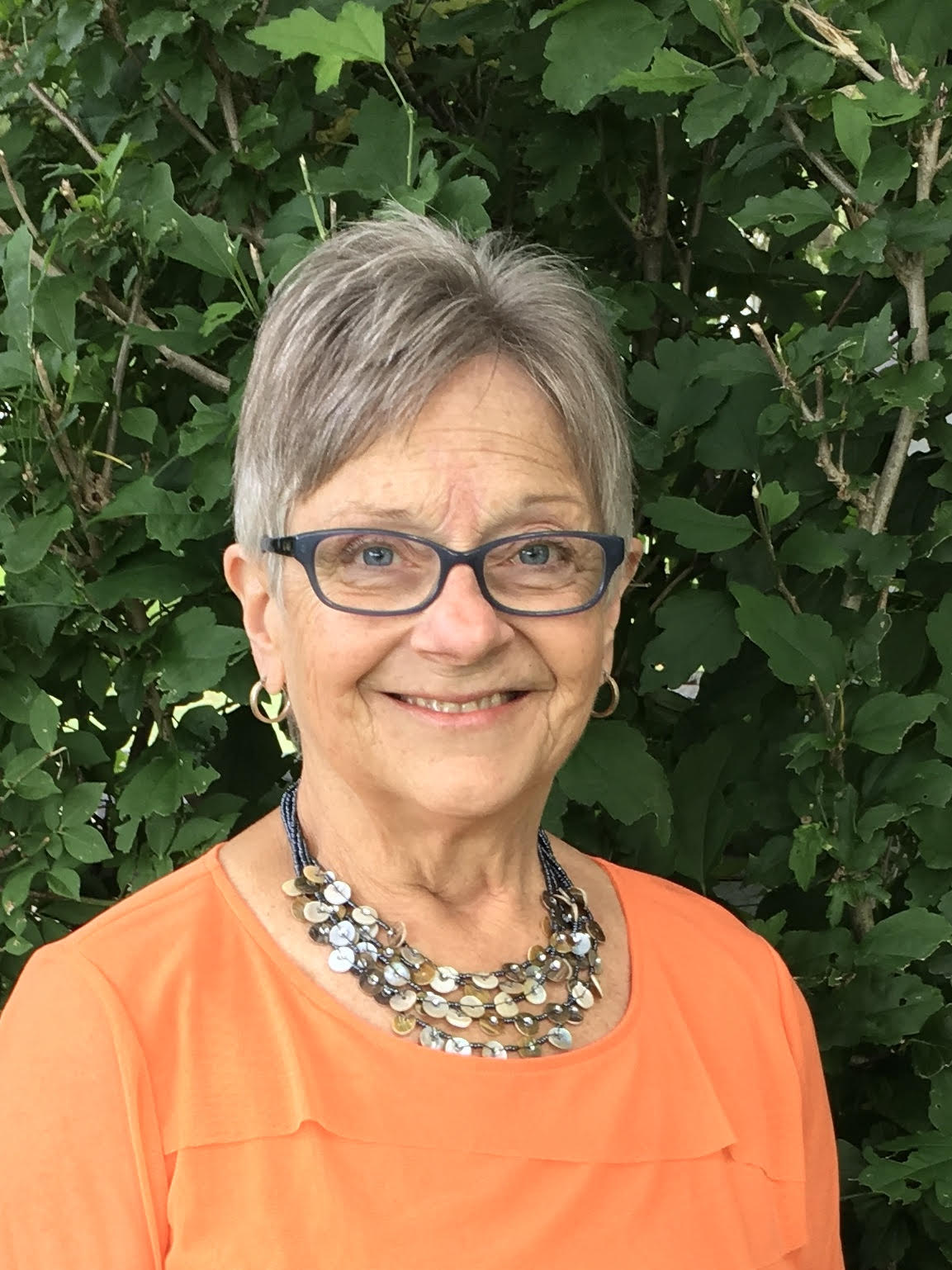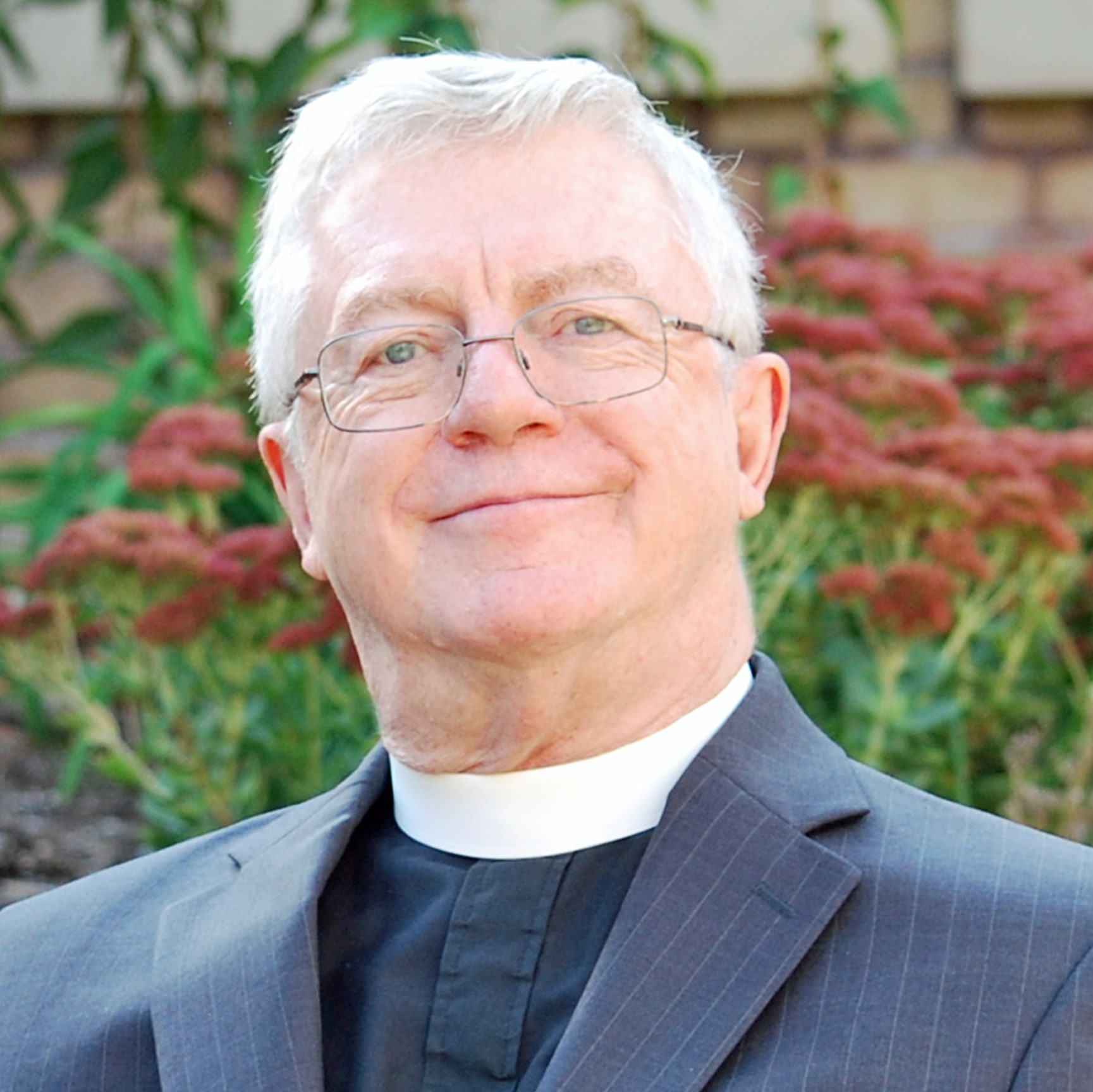|
|
|
|
|
|
|
|
|
|
|
|
|
|
|
|
|
|
I acknowledge the continuing COVID disruptions in our lives and in the lives of those we serve. My hope is that you and yours are supported, safe, and well. This issue of Connects embraces the voices of COVID non‑death related loss.
A recent news headline was entitled “U.S. Veterans Express Grief Over Taliban Takeover” in response to the residual Afghan unrest, chaos, and fear sparked by the retreat from a long‑standing war. We witness Haitians suffering again as devastation ravishes safety and survival.
As I write this, Hurricane Ida is causing catastrophic damage for many in the US. Countless global and local events underscore our enduring call to provide leadership in times of crisis and grief and to offer solace to each other.
|
|
|
|
|
|
|
|
|
|
|
|
|
|
|
|
|
C.S. Lewis articulated the idea that both death and other “deaths” can provoke and disrupt us at our core. Early in my career as a counselor educator, I was struck by the necessity and rich value of a “loss informed” framework. It can be a practitioner’s guide to conceptualizing and responding to a client’s narrative and need as a therapeutic alliance is built. I have suggested an inclusive definition of loss as any experience across the lifespan that demands the surrender of something personally significant and/or familiar. Such a lens increases our recognition of grieving as a process not exclusively for the bereaved.
Recently, I have been involved in a qualitative research study interviewing young adults who grew up with an incarcerated parent. Parental absence carries an ambiguity that is permeable and undeniable. The healing relief when those losses are identified, validated, and processed is equally rousing and also undeniable. My hope is that we continue the critical investigation of whether, how, and when our evidence‑based bereavement models and interventions have applicability to non‑death events. Additionally, we need new avenues of research and practice that distinguish what is common, parallel, and unique about death and non‑death experiences. In my roles as thanatologist, educator, and counselor, and in my individual lived human experience I have clearly found the loss‑informed perspective to be central, additive, and compelling.
Now, here are a few ADEC highlights:
The Handbook of Thanatology, 3rd Edition – Available this Fall!
-Self-published and co‑edited.
-Available in print and digital versions.
-Inclusive of 22 chapters of best thanatology research and practice.
-Authored by diverse contributors.
-Aligned with ADEC’s revised Body of Knowledge.
The ADEC 2022 Annual Conference
-Virtual and in‑person programming design.
-Open conference abstract submission until September 24.
-Intentional invitation for proposals representing concepts defined by the American Psychological Association (Akbar & Parker, 2021) – Diversity: our social identities that carry power and privilege difference and often marginalization. Equity: the processes, conditions, and resources needed to optimize the functioning of all diverse social identities. Inclusion: the environmental contexts for affirming and celebrating the contribution of difference.
ADEC’s Revamping of Internal & External Communications
-Monthly committee chair meetings to collaborate, cross reference activities, and streamline ADEC efforts.
-Upcoming revisions to our website and social media presence.
-Systematic engagement strategies that target new member recruitment and involvement, match volunteer skill sets with committee needs, and create networking opportunities.
-Outreach to professionals and groups outside our current membership to join the 2nd annual mid‑year event Nov. 13th.
We are accelerating key messaging about ADEC. We are answering an ethical imperative to provide collective international, interdisciplinary, multicultural expertise to the field. We are increasing our thought leadership and evidence‑based visibility at a global level. Most importantly, this is possible only because of your expertise, commitment, and willingness to serve. You are the heart and foundation of ADEC.
With gratitude and purpose as we move forward,
Peggy P. Whiting, EdD, FT
ADEC President 2021-2022
|
|
|
|
|
|
|
|
|
|
|
|
|
|
Non-death COVID Articles Written by ADEC Members
Featured Member Profile
Student Profile
Credentialing Council Update
What’s New: New Books from ADEC Members
Members’ Corner
|
|
|
|
|
|
|
|
|
|
|
|
Non-death Losses Experienced During COVID
|
|
|
|
|
|
|
|
|
|
The COVID pandemic has been devastating on many levels. In the August and October issues of Connects we are featuring articles from ADEC members that describe how difficult it has been for many individuals to get back to “normal.”
|
|
|
|
|
|
|
|
|
|
|
|
|
|
|
|
|
|
Malaise and Melancholia: Pandemic-related losses in Singaporean Society
Paul Victor Patinadan, B.Psy, CT
|
|
|
|
|
|
|
|
|
|
The tiny, island city-state of Singapore has garnered much global attention from the onset of the COVID-19 pandemic. Hailed as a bastion of clinical efficiency (having learnt much from navigating the SARS epidemic in 2003), the country has spared no expense in management of the virus and is now steadily moving towards an 80% vaccination rate for her population.
|
|
|
|
|
|
|
|
|
|
|
|
|
|
|
|
|
However, the losses sustained from this journey, like those of other nations, has undoubtedly taken its toll on Singapore’s people; perhaps in more subtle and idiosyncratic ways than most. A day prior to lockdown, for example, food delivery services ground to halt as the citizenry rushed for that final cup of boba-tea, choking malls and favourite stores with unrelenting queues. Not too surprising, when you consider that eating is touted as our national pastime. ‘Dining-in’ policies (understandably) remain the most hotly monitored of government addresses.
A last grab for sweet treats though, belies evolving social issues. A historic port-of-call, tourism and hospitality, as well as food and beverage sectors, took a hard tumble; with many required to reskill themselves for gainful employment. Greater instances of domestic violence were referred and reported as work-from-home initiatives saw harried implementation. TV ads petitioning viewers to ‘break the silence’ slipped between primetime slots for the first time, with some of the public even deeming them too graphic. Losses to safety and security were manifest in these forms.
For an intimately collective mix of ethnicities, life events such as weddings and funerals (that would otherwise see attendances in the hundreds), have become muted affairs. As social and familial ties fray, what is being lost is a way of life. Singaporeans form a quiet, industrious community. Only time will tell how deeply the melancholia of the new normal has seeped into the communal fabric of our society.
|
|
|
|
|
|
|
|
|
|
|
|
|
|
|
|
That Feeling They were Feeling was Grief: Supporting Non‑death Related Loss During a Pandemic
Keri-Lyn Durant, BEd, MA, PhD (c.)
One of the hardest, most rewarding things I’ve had to do in my career as an educator was support 74 beautiful adolescents navigating the non‑death loss mire associated with the global pandemic.
As a dying, death, and loss educator who also teaches high school, there were sweet, confused faces seated two metres apart, searching for answers from behind their masks.
|
|
|
|
|
|
|
|
|
|
|
|
|
|
|
|
|
And me, a trusted adult, had no idea how to answer the questions about the virus.
But what I did know how to do was help them recognize their collective response to this prolonged uncertainty. They were grieving. They were experiencing what Harris and Winakuer (2019) described as living losses, and what Boss (2000) coined as ambiguous loss. Being teenagers, of course, they weren’t really interested in how much I knew about these losses. So, I met them, as Wass (1980) suggested, where they were.
When a student voiced that they were missing someone, or something, or anticipating that an event would have to be altered, postponed, or cancelled, I would agree that it did indeed suck. I would then propose a Five-Minute Pity Party, which could involve ranting, commiserating, laughter, well‑placed profanity, and/or spontaneous dancing, in any order (because grief doesn’t have stages, right?). Lastly, I would offer the opinion that what they were feeling was grief. And that grief, as Kate Atwood reminds us, was good, because it meant that we honored the loss and then learned how to move forward in a new way.
This ‘naming it to tame it’ approach meant that while these losses were acknowledged, my students admitted that they felt heard. I didn’t have to have any concrete answers. What I had for them were ideas and thoughts on how to ford ahead, and not to a new normal, per se, but to a space where they could comprehend that grieving is a healthy, non-finite process. Cadell (2021) says that a loss is a loss is a loss; and, with that in mind, my students ideally will move forward with new tools to navigate the next one.
|
|
|
|
|
|
|
|
|
|
|
|
|
|
|
|
Five Brief Perspectives on Getting Back to Normal
Ted Bowman, MDiv
1. Change is when predictability breaks down. Our normal ways of doing things are disrupted by change. Transition is the psychological, some say theological, process of coming to grips with change, not by returning to normal. Rather, to embrace the change acknowledge the loss, and, then, take the best of the past and modify it for the present and future story.
2. Shattered dreams can occur when plans, hopes and dreams have become part of one’s assumed world. To dream a new dream, one must grieve the shattered dream before reframing previous plans, hopes, and dreams into the next, not necessarily, new dream.
|
|
|
|
|
|
|
|
|
|
|
|
|
|
|
|
|
3. Heard often in the last few years: Ted, if I awake during the night, I don’t think about my (dead husband, cancer, my son’s addictive choices, my child and virtual learning), no Ted, I worried about the state of the world. For many, a threshold has been crossed of confidence in American/world solidarity and OUR abilities to weather collective storms of climate and community unrest, pandemics, interwoven histories of hope and oppression. Listening for and to accounts of grieving the state of the world can be a first step toward acknowledgement which can then lead to steps toward addressing the sorrows of the world.
4. Tom Attig has written about re-learning one’s world after losses. Michael White wrote about re-authoring one’s story. Use of this time to revise, rewrite or re-author one’s story affirms one’s voice and the power that stories have. Someone shared with me that one cannot write the next story if they only keep re-reading the old story.
5. Loss accumulation is from the moment of birth until now. Loss overload occurs when too many losses happen in a relatively short period of time (the length of which depends on the griever). Recently, many have experienced struggles of many kinds that have evoked languishing – an unsettled and restlessness in life and things that typically bring joy. Nel Noddings has wisely asserted that while joy and grief may not occur simultaneously, they can occur alternately. Such a dual process can be healing even while also struggling, but now with times of joy affirmed alongside losses.
Consider these five brief perspective as parables for living with ambiguity during troubling times. Reframing, re-authoring, and practicing a dual process can inform embracing transitions after changes and shattered dreams.
For references, contact tedbowman71@gmail.com.
|
|
|
|
|
|
|
|
|
|
|
|
|
|
|
|
Living through a Pandemic
Amy Vogel, MA, CT, CTTP
The world came to an abrupt halt in March 2020. I was traveling to California for a training for my internship when I kept hearing the word coronavirus. I didn’t think much of the virus at that time or how it would affect the course of my internship, life, travel plans, and family.
Once I returned home, the word coronavirus and COVID-19 were in the papers, social media, and news. The world appeared to stop. Individuals felt forced to stay in their homes. Although we were concerned with our safety, we flooded the supermarkets in search for food and nonetheless, toilet paper. The entire world’s population was quickly looking at a new normal and grieving our past lives.
|
|
|
|
|
|
|
|
|
|
|
|
|
|
|
|
|
Due to unforeseen circumstances I lost my internship site in the middle of the pandemic. I was six weeks into a sixteen-week semester. Feelings of confusion, distraught, and panic came over me. My thoughts became quickly irrational about finding a new internship site during a pandemic. I had to learn to be patient and accept my graduation date would be a semester later than intended. I found a new internship site for the next semester which turned out to be the best experience for my career. There were still losses that occurred during my new internship due to the pandemic. I ended up being diagnosed with COVID-19 around Thanksgiving. My clients and I lost the opportunity to meet face-to-face. We quickly went to telehealth. My clients missed playing games, drawing, and being in-person but adapted. They were able to use the pandemic to practice their skills of mindfulness and behavior modification. They even stuck by me during my COVID-19 brain fog moments.
Not all losses come from death. Individuals are dealing with loss every day. It is what we do with the loss that matters. Viktor Frankl say’s it best, “Everything can be taken from a man but one thing: the last of the human freedoms—to choose one’s attitude in any given set of circumstances, to choose one’s own way.”
|
|
|
|
|
|
|
|
|
|
|
|
|
|
|
|
|
|
Kids Coming Out of Covid
Cheryl Amari, MA, CT
Adolescence is typically a time of rapid change, filled with new experiences and challenges. This stage of life already has its share of non-death losses, even in the best of times. So, it’s not hard to imagine the extra stress, loss, and grief teenagers have encountered during this pandemic.
|
|
|
|
|
|
|
|
|
|
|
|
|
|
|
|
|
Where I teach, we adopted a hybrid model for the 2020‑21 school year. On any given day about half the students were on campus and half were remote. I noticed that students adapted quickly to the new protocols of school during the pandemic, grateful to have school resume in at least some kind of format.
Some of them embraced the remote learning environment, noting a few of the secondary gains such as more time to sleep and less running around after school to various activities.
Others struggled with the myriad of secondary losses that accompanied this unusual year. They had a hard time making friends. They dealt with disappointment and frustration each time a sporting event or activity was delayed or canceled. They felt bereft of typical high school experiences such as proms and parties. They struggled academically, noting that online learning just wasn’t as effective for them as in‑person learning. Their “assumptive world” was shattered as they faced a life that was full of unexpected disruptions.
As we approach a new school year I’m sure these disruptions will continue to some degree. How will students cope? As we strive for a return to “normal” we also realize the pandemic is not over. In this liminal space there will be more unexpected secondary gains and losses. Students may struggle not only with pandemic‑related issues, but with concurrent losses such as mental health issues, difficult family situations, and pet loss. And we will continue to grieve, collectively and individually.
|
|
|
|
|
|
|
|
|
|
|
|
| Connects is featuring stories on selected individuals so that the ADEC community can get to know its members. |
|
|
|
|
|
|
|
|
|
|
|
|
|
|
|
|
Michelle Ramirez, MS, FT
Michelle empowers organizations through Hope for Grievers Bereavement Education, in better supporting the grieving families they serve. Her professional and community service experience includes designing, implementing, and overseeing donor family bereavement programs, faith-based community grief programs, facilitating grief, self‑care and Laughter Yoga workshops, suicide loss survivor events and advanced planning of end‑of‑life issues.
|
|
|
|
|
|
|
|
|
|
|
|
|
|
|
|
|
Michelle serves as Chair, in the formation of AFSP South Texas Chapter and currently serves as ADEC board member. An ADEC member since 2012, CT‑certified, now a Fellow, Michelle serves the Membership and Diversity & Inclusion committees. As a griever of traumatic loss, along with the lived experience of a past suicide attempt, Michelle compassionately empathizes with the grievers she supports as well as those who struggle with suicide.
Short Description of Current Work:
I am blessed to support and work with families on behalf of various organizations as an independent bereavement educator and professional. I chose to become independent not really knowing if I could make a living as an independent bereavement professional, but I found that there were many organizations that needed or could benefit from bereavement support for families that they served but did not necessarily have a budget for full time staff, so I wanted to provide support for those organizations. I also found many organizations and professionals providing subpar bereavement support, so I wanted to also empower organizations and professionals to become better for grieving individuals and communities. Self‑employment definitely is not for everyone. It has its benefits but also as its risks and obstacles.
Through my work, I have had the honor of supporting grieving parents, donor families, those impacted by suicide loss, educating on the Donate Life Texas organ, eye, and tissue donor registry, providing continuing education to new bereavement professionals, facilitating community bereavement workshops and support groups, and speaking at memorial events, conferences and educational presentations.
I also provide pastoral care and lead my church's community grief ministry since 2008. With a team of five, we offer grief support to a congregation of 3500+, as well as the community who may benefit from support for anticipatory grief or grief following the loss of a loved one.
My community service includes serving ADEC as a board member and as chapter chair for the South Texas Chapter of the AFSP.
I plan to add published author to my resume as well by the end of the year with my upcoming book, "I Love Me Now." I have worked for nearly two decades on my personal story through journaling and reflection of what was helpful in my life journey following the traumatic experiences of violence, sudden loss, personal tragedy, chronic physical illness and mental health struggles of PTSD and depression. I provide a reflection of what was helpful in this journey that I feel would have been helpful to know in advance of encountering these experiences. My hope is that in being transparent with my own experiences and journey to resilience and healing will provide hope to even just one person. It has not been easy writing this book. However, I have had mentors and helpers be courageous in sharing their stories with me for my benefit so I must pay it forward and return the favor to others.
Do you have a mentor/role model who has significantly affected your career path in thanatology? Tell us why you chose this career path.
There are several people here at ADEC and in my circle of friends and colleagues who really impress me with their passion, integrity, and compassion for others. There are some who stand out. Two fellow Texans who introduced me to others here at ADEC and became very strong colleagues and leaders to look up to were Bill Hoy and Faye Green.
Bill Hoy: I don't think I ever said Thank You enough to him but I am a shy person and felt intimidated at ADEC in 2012 but he welcomed me and helped me connect to the true benefits of ADEC. I was able to grow as a professional and as a leader. He helped me discover strengths I had and listened. He also had a passion for ADEC that I was able to follow in my hopes to instill in future generations of thanatology and bereavement professionals.
Fay Green: Fay is in my city and is truly a colleague and friend. Like Bill, her passion for ADEC also was instilled in me. We have met often in person through the years to discuss ADEC, our service and our work. Fay is such a good listener and has helped me develop confidence and also grow professionally. She is very supportive of diversity and inclusion committee's efforts at the conference and helped me develop my own voice. I don't think I ever say Thank You enough to her either.
I chose this path of work somehow by "calling" and partly by "passion." I became a true expert in grief and bereavement by personal experiences and finding resources to heal, cope, survive, and gain resilience. In the course of learning how to survive and heal, I discovered I was able to recognize pain in others. I couldn't bear the thought of anyone going through pain alone, so I wanted to be there. I pursued a Bachelors, then Master's degree to facilitate my development as a bereavement professional. I also found ADEC.
The "calling" came when our church's current GriefShare facilitator was stepping down and literally put it in my lap. I didn't feel I could do it and didn't feel I could offer anything to that but when I went home and spoke to my husband and I prayed for guidance. I knew I could never turn my back on grieving individuals so I pursued learning opportunities to be the best I could be for those I supported and had the honor of serving.
My mother, who was widowed at age 45, with my dad's sudden death shortly after their 28th anniversary, has been one of my greatest inspirations and encourager. She has shown great resilience and participated in healing opportunities as well for grief. She reassured me that I could learn from these painful experiences that I had gone through and help others but she always encouraged me to self-care as well. I never felt forced into this work. It is my choice. My mom and my husband and family fully support my work.
Mom calls me a "fireman." She says others run away from pain yet I run to it.
What advice would you offer a more junior professional in the field on growing their career or keeping their work fresh?
Self‑care always helps you stay fresh and healthy thus it helps your work remain fresh. Always do your best to have a life with meaningful work versus having a lot of work with a little bit of life. This never ends well.
What do you think the future holds for your work and that of others like you? How will that impact what you do?
I want to continue to impart my passion, knowledge, and wisdom I have gained and hope to others. I believe that as long as there is a broken heart in the world due to loss, the future will hold promise for the development of bereavement professionals.
What motivates you to continue in this field of bereavement education, support and advocacy?
Seeing someone embrace life and love following tragedy, death loss, and heartbreak motivates me to continue to empower organizations, families and communities. I see that healing can happen so I want to be an example and a voice for the bereaved and wounded.
Describe how the role of being an ADEC member has been beneficial to you in your professional and or personal life.
ADEC helps our field serve with integrity, knowledge, and confidence. I feel ADEC also helps promote and give identity and value to our profession. In addition, ADEC's certification designation has helped provide a further voice to professionals. I have been embraced and empowered as an individual, as a professional and as a colleague.
|
|
|
|
|
|
|
|
|
|
|
|
|
|
So that the ADEC community can get to know its students, Connects is featuring stories on individuals who are ADEC scholarship recipients.
|
|
|
|
|
|
|
|
|
|
|
|
|
|
|
|
Hello, ADEC! My name is Erin Hill and I am a Counseling Psychology Doctoral Student at the University of Maryland, College Park. My research interests center around predictive factors for grief outcomes, end-of-life issues, caregiver wellbeing, and interventions for grieving communities. I chose the field of counseling psychology because it enables me to engage deeply with research, provide individual counseling, and advocate for change. I hope to apply each of those goals to support those grieving a stigmatized loss, such as a substance‑related death.
|
|
|
|
|
|
|
|
|
|
|
|
|
|
|
|
|
When I’m not writing my thesis or creating a lesson plan, I am running around Washington, D.C. trails and parks, and probably stopping to try a new bagel spot along the way.
Do you have a mentor/role model who has significantly affected your career path in thanatology? Tell us why you chose this career path.
Dr. Karen O’Brien, my research advisor, taught me that while loss is a universal experience, many factors determine the way that someone experiences grief. She’s shown me that research has the potential to create equitable support for people as they mourn. Additionally, my mother, Joan, has always been open about her grief for loved ones throughout my life. She’s taught me that her grief isn’t something to be ashamed of, but instead a passenger on her journey. Because of her, I hope to help others navigate their lives alongside their grief.
What advice would you offer a more junior professional in the field on growing their career or keeping their work fresh?
Sometimes you have to answer your own questions! If you have a question about something and you have a hard time getting an answer, you can be the one to find it. Addressing gaps in the grief literature helps create new treatments, interventions, and sources of support for grievers, so think of your questions as inspiration.
What do you think the future holds for your work and that of others like you? How will that impact what you do?
The field of counseling is only growing, especially as the world grows a bit more comfortable every day with asking for help. I hope the future of this field is not only the expansion of support for grievers and caregivers, but also increased inclusion, accessibility, and equity in the resources that do exist.
|
|
|
|
|
|
|
|
|
|
ADEC Credentialing Council Update
|
|
|
|
|
|
|
|
|
|
To keep members abreast of what is happening within ADEC , Connects features articles discussing the latest activities.
|
|
|
|
|
|
|
|
|
|
|
|
|
|
|
|
What the Heck is the Credentialing Council and What Do They Actually Do?
Jolene Formaini, RN, BSN, MA, CT
Your Credentialing Council is made up of 8 multidisciplinary thanatology professionals who volunteer their time and expertise for 3 years minimum and 6 years maximum.
The Council was created in 2011 on the recommendation of the Board of Directors and by majority vote of ADEC membership to oversee and maintain a valid credentialing program in the field of thanatology on behalf of ADEC.
|
|
|
|
|
|
|
|
|
|
|
|
|
|
|
|
|
There are 7 committees managed by the Credentialing Council: Application Review, Audit, Appeals, Practice Analysis, Policy/Job Description, Communications and, finally, the Exam Management Committee which includes a contracted professional Test Consultant who conducts analytic methodology to ensure the validity of the exam. The Exam Management Chair oversees the Item Writer Committee and the Exam Construction Committee. The Credentialing Council Chair also serves as a non‑voting member on the ADEC Board of Directors to represent the interests of the credential.
As you can imagine, there are many moving parts: from developing and administering an annual exam, reviewing applications, renewals and appeals, and conducting audits to creating policies and setting standards that ensure the integrity of the credential. While the “moving and shaking” is done by the volunteers on the Council and its committees, we count on MHQ, the contracted ADEC management firm, to provide all the additional work that goes into running a certification program and delivering the products to our members and certificants. As you can see, it takes a dedicated and committed team to successfully manage the credentialing program for ADEC.
These past 18 months have brought new challenges and opportunities to thanatology professionals across the globe. Never has the need been greater for the public to be able to identify professionals and service providers who “specialize” in death, dying, loss, grief, and bereavement. The ADEC CT® and FT® are recognized and respected credentials internationally and nothing makes us prouder than to be able to recognize individuals, like you, who have the experience and education needed to earn them.
I am sincerely humbled to serve the ADEC community as your Credentialing Council Chair,
For all information about ADEC’s Certification program: https://www.adec.org/#
Your Credentialing Council and Manager: https://www.adec.org/page/CredentialingOversight
For credentialing related questions, use ONLY to this email: credentialing@adec.org
|
|
|
|
|
|
|
|
|
|
|
|
What's New: New Books from ADEC Members
|
|
|
|
|
|
|
|
|
|
"What's New" offers a brief review of educational materials written or produced by ADEC members. Each review is run once and is intended to showcase the contributions of our membership to the death, dying, and bereavement field.
|
|
|
|
|
|
|
|
|
|
|
|
|
|
|
|
Want to have your publication included in Connects?
Send a review copy (not just an announcement) of recent material
(2019 - present) to:
The Rev. Paul A. Metzler, D.Min.
Editor, Books & Other Media
ADEC Connects/THE FORUM
5305 Kenrick View Dr
Saint Louis, MO 63119
Cell: (315) 415-4731
Email: paul.metzler2010@gmail.com
|
|
|
|
|
|
|
|
|
|
|
|
|
|
|
|
|
Tuck Meets a Dragonfly
Charles, Francis.
Maureen Walsh, an ADEC member, wrote this book for grieving children under the pen name, Frances Charles, to honor her parents. Pleasantly illustrated by Susan Nicolaides, it tells the story of Tuck, a friendly looking turtle unable to leave his house to play since his mother’s death. Tuck says he needs assurance that his mother is okay in Turtle Heaven so his best fellow‑turtle friend, Padraic, sets out to find help. This leads finally to Katrina, a new and beneficent dragonfly who brings back to Tuck from the heavenly Golden Window a message from his mother that their “spirits are forever joined and someday we will be together again.” Walsh includes suggestions for how to share this book with grieving children to explore unique beliefs about life after death. It will be useful to parents and counselors to open that sensitive discussion.
Kingston, MA: Float Tide Publishing, 2021. ISBN: 978‑0‑9992113‑2‑8. Hardcover, 29 pages.
Grief after Homicide: Surviving, Mourning, Reconciling
Wolfelt, Alan D.
Alan Wolfelt explores the emotional complexity that defines grief following a homicide death. His goal is to help homicide grievers feel “seen, safe, and comforted.” Sadly, homicide rates grew significantly with the COVID‑19 pandemic, so this small booklet will be of relevance to many bereaved by sudden and violent loss. In Part 1, Wolfelt examines the prolonged shock and helplessness that a homicide death engenders, the isolation that is common, and the impact of media scrutiny and law enforcement involvement that follow such a death. In Part 2 he applies his “Six Needs of Mourning” template to the circumstances of homicide grief and offers suggestions for grievers to take thoughtful care of their physical, cognitive, social, and spiritual selves. One of Wolfelt’s “Words of Hope and Healing” series, this booklet offers a sense of hope in the midst devastating loss.
Ft. Collins, CO: Companion Press, 2021. ISBN: 978‑1‑61722‑303‑7. Softcover, 57 pages.
|
|
|
|
|
|
|
|
|
|
|
|
|
|
ADEC Member’s Corner is a regular column in ADEC Connects that highlights one or more members’ activity as an ADEC professional. Members’ Corner is open for contributions from all ADEC members. To have your article included, please send it to Amanda Brace or Beverly Rollins.
|
|
|
|
|
|
|
|
|
|
|
|
William Peters, founder of the Shared Crossing Project and director of its Research Initiative, notes that their research team recently published an article in the American Journal of Hospice & Palliative Medicine regarding shared death experiences. He also reports that Simon & Schuster will be publishing his book, At Heaven’s Door: What Shared Journeys to the Afterlife Teach About Dying Well and Living Better, in January 2022. The book will offer the first in‑depth portrait of shared death experiences, experiences where a loved one or caregiver reports having shared in part of a dying person’s transition to an apparent afterlife.
Dr. Alan Wolfelt will be presenting a virtual keynote address at a Funeral Expo Convention in Madrid, Spain on September 28, 2021. His presentation is titled “The Why of Meaningful Funerals: Exploring A New Model Being Used in North America.”
Bob Neimeyer is about to publish New Techniques of Grief Therapy: Bereavement and Beyond. This text expands on the previous two Techniques books, featuring innovative approaches with whose lives have been shadowed by loss – whether through bereavement, serious illness, the rupture of a relationship, or other complex or intangible losses, such as of an identity defining career. Contributors include Drs. Kenneth Doka, Darcy Harris, An Hooghe, Sherman A. Lee, Christopher J. MacKinnon, Evgenia (Jane) Milman and other subject experts and thanatology clinicians.
|
|
|
|
|
|
|
|
|
|
|
|
It’s Time to Update Your ADEC Profile!
|
|
|
|
|
|
|
|
|
|
To ensure that your ADEC profile is up‑to‑date, please login to the ADEC website. Once you are logged in, if you are not redirected automatically, simply click on the “My Profile” button in the top navigation panel.
Make sure to review your professional and personal information and edit with the “Edit” link in the headers. Additional contact details as well as your education and experiences will be a helpful resource for your colleagues when searching the Membership Directory.
|
|
|
|
|
|
|
|
|
|
|
|
|
|
ADEC’s Certification/Recertification Process Moves to a Seamless On-Line System!
|
|
|
|
|
|
|
|
|
|
This new web‑based system ensures that all things “Credential” can be found in one place on ADEC’s website. This change also makes the application process more user‑friendly. Click the blue button below to access all things new including information and forms.
|
|
|
|
|
|
|
|
|
|
|
|
|
|
|
|
ADEC offers substantial membership benefits including:
- Online subscriptions to three professional journals – Omega: The Journal of Death and Dying; Death Studies; and Grief Matters, the journal of the Australian Centre for Grief and Bereavement
- ADEC Connects
- The Thanatology NewsBrief
- Discounts to the annual conference
- Professional certification
- Professional recognition
- Connection with other ADEC members
- Professional development
- Networking
- Volunteer opportunities
- Tuition discounts
- Two free webinar recordings a year
|
|
|
|
|
|
|
|
|
|
|
|
|
|
In the midst of unprecedented circumstances, ADEC has striven to remain strong and relevant for you, the ADEC membership community. There are not promises that the challenges we’re currently facing will relent anytime soon, but if anyone knows a thing or two about resilience, its ADEC members. In the midst of the current uncertainty ADEC invites you to look ahead and support your professional home by renewing your membership for 2021.
Members’ benefits have recently been enhanced in that Members now get two free webinars per year and that includes CEUs at no additional cost. In addition, paid access to webinars has been streamlined; attendees will now pay one fee for total access (i.e., live/recorded access for three years, $45 for members/$70 for non-members).
ADEC strives to serve you. And needs you to keep ADEC strong. Please renew your membership today!
|
|
|
|
|
|
|
|
|
|
|
|
|
|
|
|
|
|
|
|
|
|
|
|
|
|
Your Account Information:
|
|
|
|
|
|
|
|
|
|
- Your name: @@first_name@@ @@last_name@@
- Your username: @@username@@
- Your email address: @@email@@
|
|
|
|
|
|
|
|
|
|
Your Membership Information:
|
|
|
|
|
|
|
|
|
|
- Your member type: @@member_type@@
- Your member status: ##MEMBERSTATUS##
- Your membership expiration date: @@membership_exp_date@@
|
|
|
|
|
|
|
|
|
|
| If you need assistance accessing your ADEC account or resetting your password, please contact the ADEC office at adec@adec.org or 612-337-1808. |
|
|
|
|
|
|
|
|
|
|
|
|
|
|
|
|
|
|
|
|
|
|
|
|
|
|
|
|
|
|
|
400 South 4th Street
Suite 754E
Minneapolis, MN 55415
Phone: 612-337-1808
adec@adec.org
Monday - Friday 8:00 AM - 5:00 PM CST
|
|
|
|
|
|
|
|
|
|
|
|
|
|
|
|
|
|
|
|
|
If you no longer wish to recieve emails from ADEC, please click here: @@unsubscribe_url@@
|
|
|
|
|
|
|
|
|
|
|
|
|
|
|
|
|
|
|
|
|




